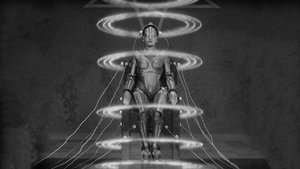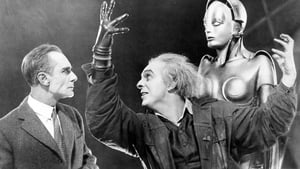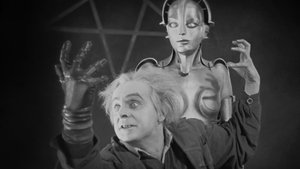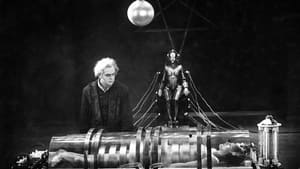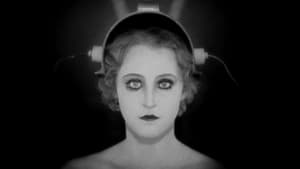Contact: [email protected]
Video Sources 0 Views
- Watch trailer
- Metropolis

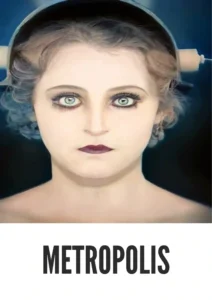
Metropolis 1927 First Early Colored Films Version
Synopsis
Table of Contents
ToggleReview: Metropolis (1927) – A Dystopian Masterpiece Ahead of Its Time

Introduction
“Metropolis” (1927) stands as a groundbreaking achievement in the realm of science fiction cinema, offering a visionary glimpse into a dystopian future where man and machine collide in a battle for the soul of humanity. In this article, we’ll explore the significance of this early silent film and its enduring impact on the world of cinema.
Check The Full Colorized Movies List
Check Our Colorized Movies Trailer Channel
Understanding Metropolis 1927: Director, Cast, and Genre
Directed by the visionary Fritz Lang, “Metropolis” (1927) showcases his unparalleled ability to blend spectacle with social commentary, crafting a cinematic experience that transcends the boundaries of time and space. The film features a talented cast of actors, including Gustav Fröhlich, Brigitte Helm, and Alfred Abel, whose performances bring the world of Metropolis to life with breathtaking intensity. As a pioneering work of science fiction, “Metropolis” (1927) explores themes of class struggle, technology, and the human condition, setting the stage for generations of future filmmakers to follow.
Exploring the World of Metropolis 1927: Plot and Characters
At its core, “Metropolis” (1927) tells the story of a divided society, where the privileged elite live in luxury above ground while the oppressed workers toil in the depths below. When the son of the city’s ruler falls in love with a revolutionary worker, he is drawn into a web of intrigue and rebellion that threatens to tear Metropolis apart. As tensions rise and the city teeters on the brink of chaos, the fate of humanity hangs in the balance, and only love and understanding can save the day.
The Art of Silent Cinema: A Visual Spectacle
“Metropolis” (1927) is a testament to the power of silent cinema to convey emotion and meaning through imagery alone. From its stunning set designs to its innovative special effects, the film dazzles audiences with its visual splendor, transporting them to a world of towering skyscrapers, bustling factories, and shimmering cityscapes. Through its masterful use of light, shadow, and movement, “Metropolis” (1927) creates an immersive cinematic experience that continues to captivate viewers nearly a century after its release.
Metropolis 1927 and Its Influence on Modern Cinema
The impact of “Metropolis” (1927) on modern cinema cannot be overstated. From its iconic imagery to its thought-provoking themes, the film has inspired countless filmmakers to explore the possibilities of the medium and push the boundaries of storytelling. Its influence can be seen in everything from the science fiction epics of today to the dystopian nightmares of tomorrow, cementing its status as a true classic of the genre.
The Legacy of Fritz Lang: A Visionary Filmmaker
Fritz Lang’s legacy extends far beyond “Metropolis” (1927), with a diverse body of work that continues to captivate audiences around the world. From “M” to “The Testament of Dr. Mabuse,” Lang’s films are celebrated for their innovative storytelling, striking visuals, and profound insights into the human condition. Through his groundbreaking work, Lang has left an indelible imprint on the world of cinema, inspiring generations of filmmakers to explore new horizons and challenge the status quo.
Themes Explored in Metropolis 1927
“Metropolis” (1927) explores a wide range of themes, from the dangers of unchecked technological progress to the power of unity and compassion in the face of adversity. Through its richly drawn characters and thought-provoking narrative, the film invites viewers to contemplate the complexities of society and the forces that shape our destinies. As audiences immerse themselves in the world of “Metropolis” (1927), they are confronted with timeless questions about the nature of power, the meaning of freedom, and the enduring struggle for justice in an unjust world.
Reception and Controversy Surrounding Metropolis 1927
Upon its release, “Metropolis” (1927) received mixed reviews from critics, with some praising its ambitious scope and groundbreaking visuals, while others criticized its simplistic narrative and heavy-handed messaging. However, over time, the film has come to be recognized as a true masterpiece of cinema, earning accolades for its enduring relevance and cultural significance. While the decision to release the film in a colorized format sparked debate among purists, its impact on the world of cinema remains undeniable, inspiring generations of filmmakers and captivating audiences with its timeless themes and striking imagery.
Where to Watch Metropolis 1927 Online
For those eager to experience the timeless magic of “Metropolis” (1927), the film is readily available on popular streaming platforms such as Netflix, Amazon Prime, and Hulu. Whether you choose to watch it in its original silent format or the restored version with added sound and color, “Metropolis” (1927) promises to transport you to a world of wonder and imagination, where the future is both dazzling and dangerous.
FAQs About Metropolis 1927
Q: Is “Metropolis” (1927) based on a true story? A: No, “Metropolis” (1927) is a fictional tale set in a dystopian future where society is divided into two classes: the wealthy elite who live in luxury above ground and the oppressed workers who toil in the depths below.
Q: Who are the main actors in “Metropolis” (1927)? A: “Metropolis” (1927) features a talented cast of actors, including Gustav Fröhlich, Brigitte Helm, and Alfred Abel, whose performances bring the world of Metropolis to life with breathtaking intensity.
Q: What awards did “Metropolis” (1927) win? A: While “Metropolis” (1927) did not win any major awards upon its initial release, it has since been recognized as a true masterpiece of cinema, earning accolades for its groundbreaking visuals and enduring impact on the world of film.
Q: Why was “Metropolis” (1927) released in a colorized format? A: The decision to release “Metropolis” (1927) in a colorized format was made to introduce the film to a new generation of viewers and enhance its visual appeal for modern audiences. While the choice to colorize the film sparked debate among purists, it ultimately allowed “Metropolis” (1927) to reach a wider audience and ensure its continued relevance in the annals of cinematic history.
Conclusion
“Metropolis” (1927) remains a timeless masterpiece that continues to captivate audiences with its visionary storytelling, stunning visuals, and thought-provoking themes. As we reflect on the enduring legacy of this groundbreaking film, let us celebrate its status as a true classic of cinema and a testament to the power of imagination and innovation in the world of storytelling. Whether viewed in its original silent format or the restored version with added sound and color, “Metropolis” (1927) promises to transport audiences to a world of wonder and excitement, where the future is both thrilling and terrifying.


